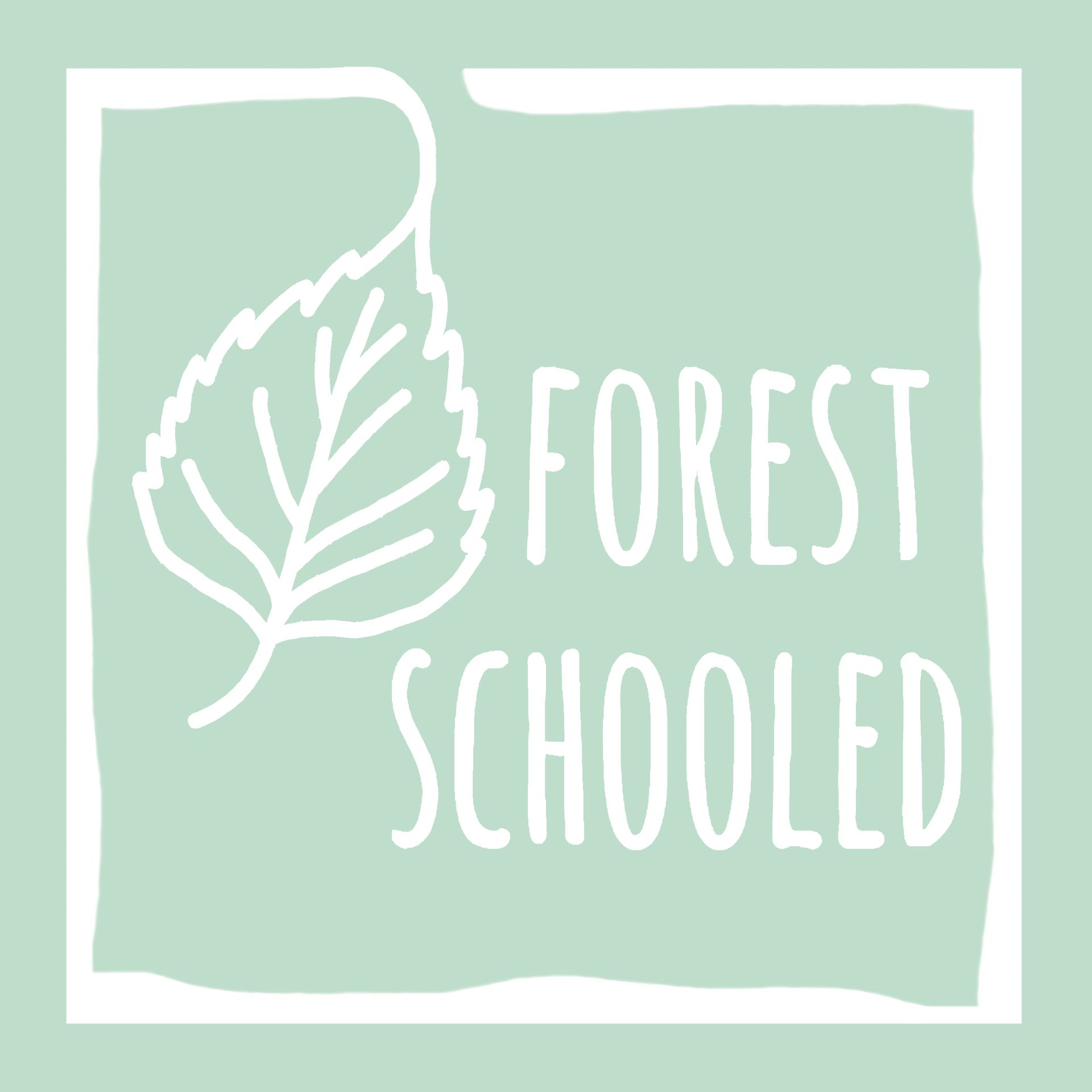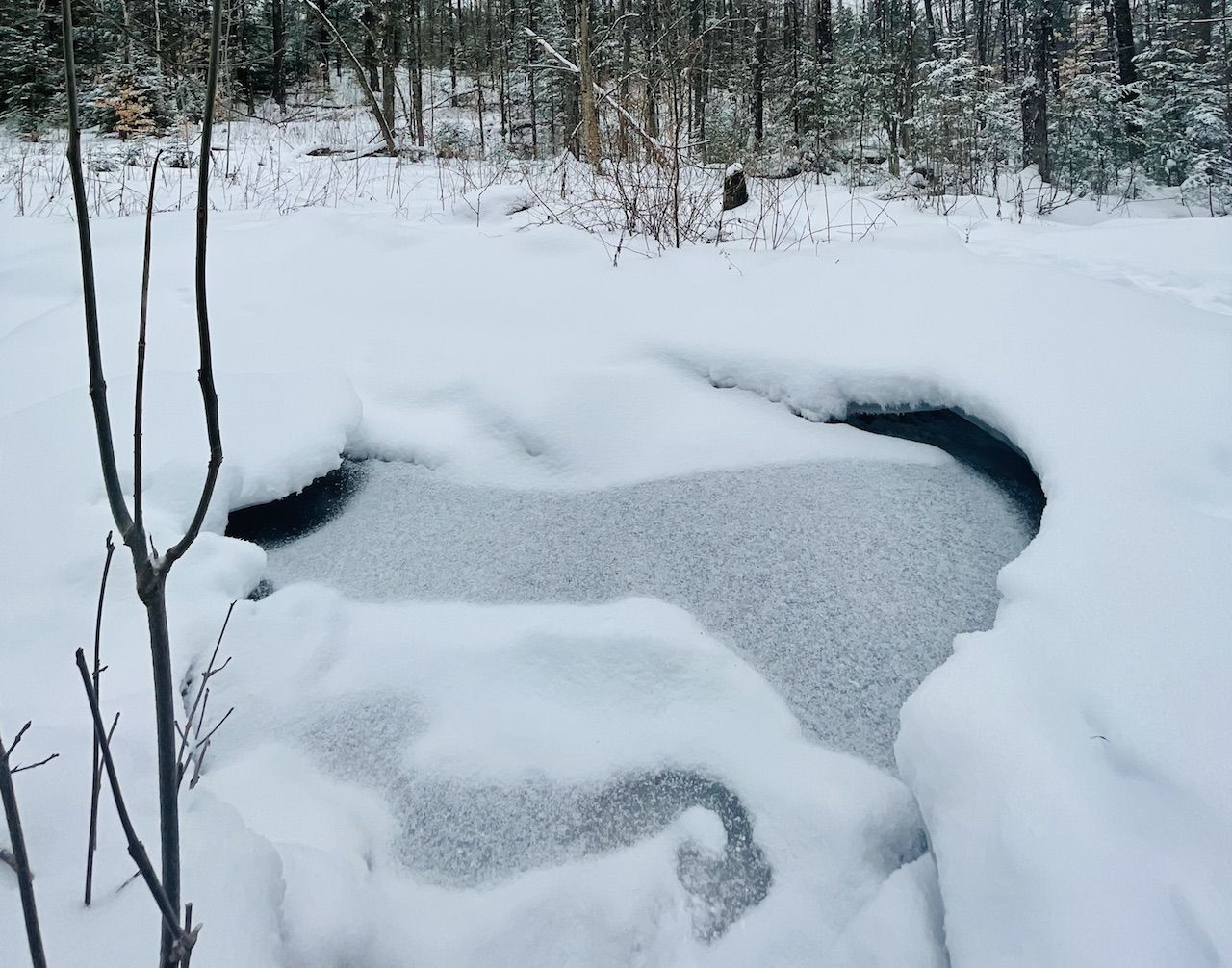
Blog
Stories from my personal journey learning about and delivering Nature-rooted programs across three different countries
Nature and the Nervous System
Feb 1
/
Caylin (Forest Schooled)

Empty space, drag to resize
I can still hear it despite being covered by a thick layer of ice and a deep blanket of snow. I just have to get a lot closer now because over the weeks of deep freeze it's become much quieter, a softer noise. A babble, some call it.
Sometimes it sounds like voices and I look around to see who else may be out on the trail. But there's never any other human there, and I laugh because it tricked me.
Other times, when I position myself just right, it sounds like a voice singing. Magical. And soothing.
This sound of water running at the creek near my house can calm and improve my mood within minutes.
Really.
Did you know that our bodies and brains are adapted to be outdoors? Assuming all else is safe within an outdoor environment, Nature helps to regulate our nervous systems.
In the relatively new book (published in 2021) The Essential Guide to Forest School and Nature Pedagogy, Jon Cree and Marina Robb write, "Our bodies have co-evolved in nature, which provides a regulating sensory environment where our natural operating system is most likely to relax" (p. 90).
But how well do we know our nervous systems?
How well do we know how our bodies and minds react in times of stress? And in times of relaxation? What does it feel like to be dysregulated (stuck in a threat response even when that threat has passed) versus regulated? How do we recognize dysregulation in children? And what do we do about it?
I bring all of this up because we have all been impacted by the stress of the ongoing pandemic for years now. And as someone who is very familiar with a dysregulated nervous system, I know how much it has helped me to learn more about this brain body connection.
And perhaps even more importantly, I know how much it helps when OTHERS understand it, and can offer support that is truly supportive. Often, without this knowledge we can cause more harm despite our good intentions. (For example, trying to rationalize with someone in the midst of anxiety or panic about why they aren't really in danger, telling them to calm down, or "just breathe" is often frustratingly unhelpful).
There has been so much development in neuroscience research over the years, as well as recognition of the value inherent in ancient wisdom about the body, and we desperately need to update our knowledge to enable better methods and systems to care for ourselves and each other.
Some day I may share my personal story more openly, but for now I'm focusing on offering more resources and education for teachers, parents, educators, playworkers, (and anyone who is human actually!) about supporting nervous system health and distressed behaviour, with a particular focus on how our RELATIONSHIP to the natural world is an essential part of this.
Many people in the field of Nature education and Forest School refer to Nature as a teacher. And I appreciate how Jon and Marina acknowledge even further, "Nature is also the therapist and a guide" (p. 10).
Write your awesome label here.
Oh, so true.
So if you missed out on enrollment for the new online offering "Intro to working WITH distressed behaviours in the outdoors" -a course that explores the intersecting fields of nature connection, neuroscience, behaviour, and trauma - you can add your email to a waitlist to be the first to know if/when we may offer it again.
In the meantime, you can access my resource Reframing our Perceptions of "Challenging Behaviour" in the Outdoors. With written and audio recorded excerpts from my book and reflective questions to help you apply to your practice, this pack includes stories that connect with theories and research on behaviour and asks thought-provoking questions that help us better understand our role as adults in "managing" behaviour. Pay What You Can Policy applies, as always.
I also know the challenge of "unlearning" what we've been taught and integrating new ways of thinking and behaving. It's hard work! If you want further support for yourself, your team, or organization, know that I'm here for you. Check out my courses here.
P.S. You might also be interested in...
Check out this podcast by my friend Brent Lamborn called "Moving your Child through Fear and Anxiety" for a whole host of valuable and essential anxiety and fear-reducing tips that not only work for children but can be applied to yourself as well.
References:
Robb, M., & Cree, J. (2021). The Essential Guide to Forest School & Nature Pedagogy. Routledge.
More Posts
WANT TO GET FOREST SCHOOLED TOO?
Subscribe to my email letters, something special from me to you so we can learn together. Each one is filled with heart-felt stories from the forest, resources you may find useful, and things that hopefully bring a smile too.
Thank you!
© by FOREST SCHOOLED
